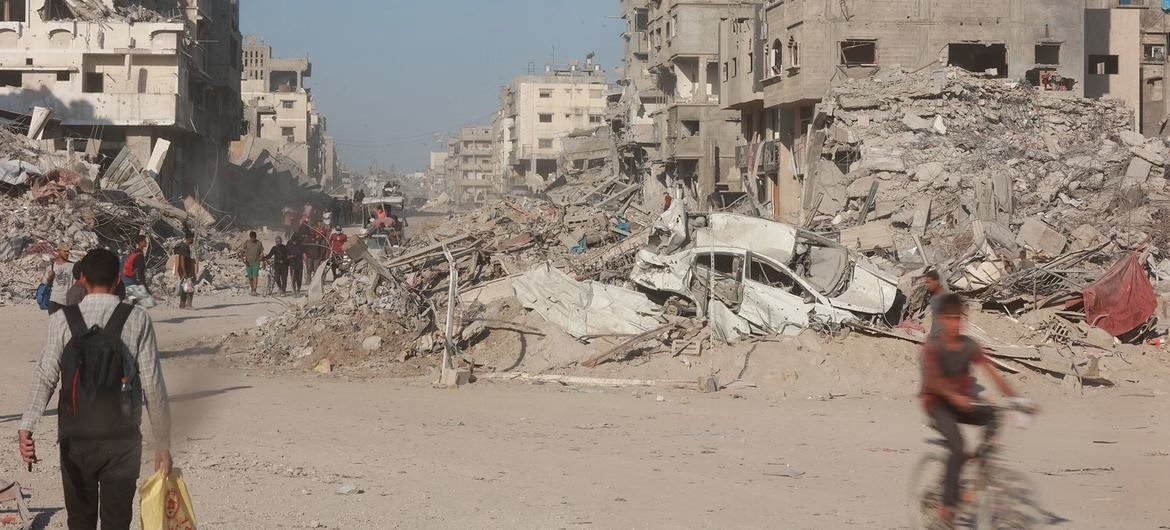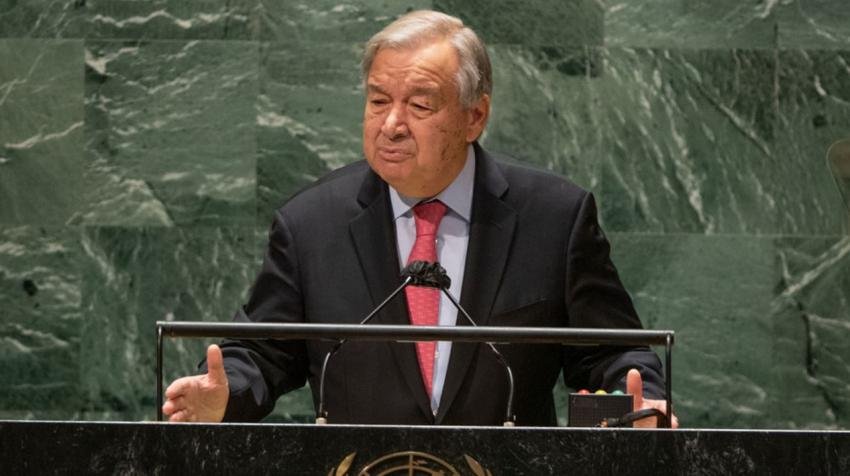Overview of Resolution 2803 (2025)
On October 5, 2025, the United Nations Security Council adopted Resolution 2803, a pivotal measure targeting stabilization efforts in Gaza. This resolution emerged in response to ongoing geopolitical tensions and the need for comprehensive peace-building initiatives in the region. The primary objective of Resolution 2803 is to authorize the deployment of an international stabilization force tasked with maintaining peace and security in Gaza. This force is expected to operate under strict guidelines, ensuring adherence to international law while addressing the multifaceted challenges faced by the region.
Resolution 2803 also establishes a ‘board of peace,’ intended to serve as a coordinating body for various stakeholders involved in the peace process. This board is designed to foster dialogue among conflicting parties, offering a platform for negotiation and conflict resolution. By emphasizing collaborative governance, the resolution aims to create a conducive environment for long-term stability and reconciliation in Gaza. The establishment of the board of peace is a significant step towards addressing the underlying issues contributing to the ongoing conflict and establishing trust among parties involved.
The provisions of Resolution 2803 reflect the international community’s commitment to providing humanitarian assistance and support for reconstruction efforts in Gaza. The stabilization force will not only focus on security but will also facilitate the delivery of crucial relief services, thereby addressing the urgent needs of the population. Furthermore, the resolution underscores the importance of engaging local communities in the stabilization process, promoting inclusivity and sustainability. The adoption of Resolution 2803 represents a landmark moment aimed at addressing the prolonged instability in Gaza and reflects a collective determination to foster a durable peace in the region.
Phased Approach to Conflict Resolution
The phased approach proposed in the comprehensive United States plan to resolve the ongoing Gaza conflict signifies a structured effort aimed at addressing the multifaceted nature of the crisis. This approach is essential for ensuring stability and fostering long-term peace in the region. To effectively navigate this complex landscape, the plan delineates several distinct phases, each targeting critical components of the conflict.
The initial phase of this plan focuses on establishing a ceasefire, which is vital for halting immediate hostilities and preventing further loss of life. Achieving this ceasefire involves negotiation efforts that include commitments from both Israeli and Palestinian factions to refrain from aggressive actions. Alongside the ceasefire, the plan emphasizes the importance of releasing hostages held by various groups, a gesture that serves to build trust among conflicting parties. Furthermore, an Israeli military withdrawal from significant areas within Gaza is integral to reducing tensions and facilitating humanitarian access.
An essential aspect of this first phase is the initiation of humanitarian efforts, which address the urgent needs of civilians affected by the conflict. These efforts include the provision of medical supplies, food aid, and shelter, to alleviate the suffering of the population during this period of transition. By prioritizing humanitarian considerations, the plan seeks to foster goodwill among the affected communities, critical to paving the way for subsequent phases.
This initial step lays the groundwork for further advancements in conflict resolution. It is crucial for both sides to engage constructively and commit to the phased approach, understanding that long-term peace hinges upon the successful implementation of these foundational measures. The roadmap outlined promises a sequential process that not only seeks to mitigate the immediate crisis but also serves as a prelude to comprehensive solutions to the underlying issues in the region.
Humanitarian Implications of the Resolution
The adoption of Resolution 2803 by the UN Security Council signals a pivotal moment in addressing the humanitarian crisis facing civilians in Gaza. This resolution aims to bolster international humanitarian efforts by facilitating increased aid to the region, which has been severely impacted by ongoing conflict. The anticipated surge in humanitarian assistance is critical, as it is expected to alleviate some of the pressing needs of the affected populations, including access to food, medical care, and clean water.
International organizations, such as the United Nations and various non-governmental organizations (NGOs), will likely play a crucial role in implementing the humanitarian provisions outlined in the resolution. These entities are prepared to mobilize resources and personnel in order to effectively distribute aid to those most in need. The collaborative efforts of these organizations will be essential not only for providing immediate relief but also for supporting long-term recovery and rebuilding efforts within the region.
However, the execution of this humanitarian mission may encounter several challenges. One salient issue is ensuring the security and safety of humanitarian workers who will be operating in an unstable environment. The ongoing violence in the region could pose significant risks, potentially hindering the delivery of aid. Additionally, logistical challenges, such as restrictions on movement and access to certain areas, could further complicate efforts, potentially leading to delays in the provision of necessary support.
Moreover, the effective coordination among international agencies and local authorities will be vital to optimize the impact of aid efforts. Ensuring that the aid reaches those who require it the most, without political interference, will be paramount. Thus, while the resolution presents a hopeful prospect for humanitarian relief in Gaza, its implementation will demand a carefully navigated approach, grappling with both immediate and systemic challenges throughout the process.
Challenges and Future Prospects
The implementation of Resolution 2803 and the deployment of the international stabilization mission in Gaza are anticipated to encounter various challenges. One primary concern is political resistance, which may originate from both local factions and external actors. The deeply entrenched political disagreements within Palestinian territories, as well as opposition from regional powers unwilling to support foreign intervention, could hinder effective governance and decision-making. Overcoming these political hurdles will require adept diplomacy and engagement strategies aimed at fostering collaboration among various stakeholders.
Security threats are another significant challenge that the stabilization mission is poised to confront. The presence of militant groups and ongoing hostilities can pose risks to both international personnel and local populations. Ensuring a secure environment for the peacekeepers will necessitate enhanced intelligence gathering, effective communication with local communities, and a robust mandate that allows for proactive engagement in countering violence. Moreover, the situation in Gaza can lead to unpredictable escalations, impacting the mission’s operational capabilities and overall safety.
The need for sustainable peace within Gaza remains paramount. A stabilization force must address the underlying socio-economic issues that contribute to unrest, including poverty, unemployment, and limited access to basic services. Collaborative efforts with international organizations and non-governmental entities can facilitate developmental programs aimed at improving the living conditions of Gazans. Additionally, it will be essential to integrate local voices and participation in the governance processes to ensure that the mission fosters long-term stability rather than temporary solutions.
The broader implications for regional stability are also worth considering. The success or failure of this stabilization effort could influence perceptions of foreign interventions in the Middle East, shaping future responses to similar crises. The role of international actors will be crucial, as their support or opposition to the resolution’s goals can either facilitate progress or exacerbate tensions in the region.




